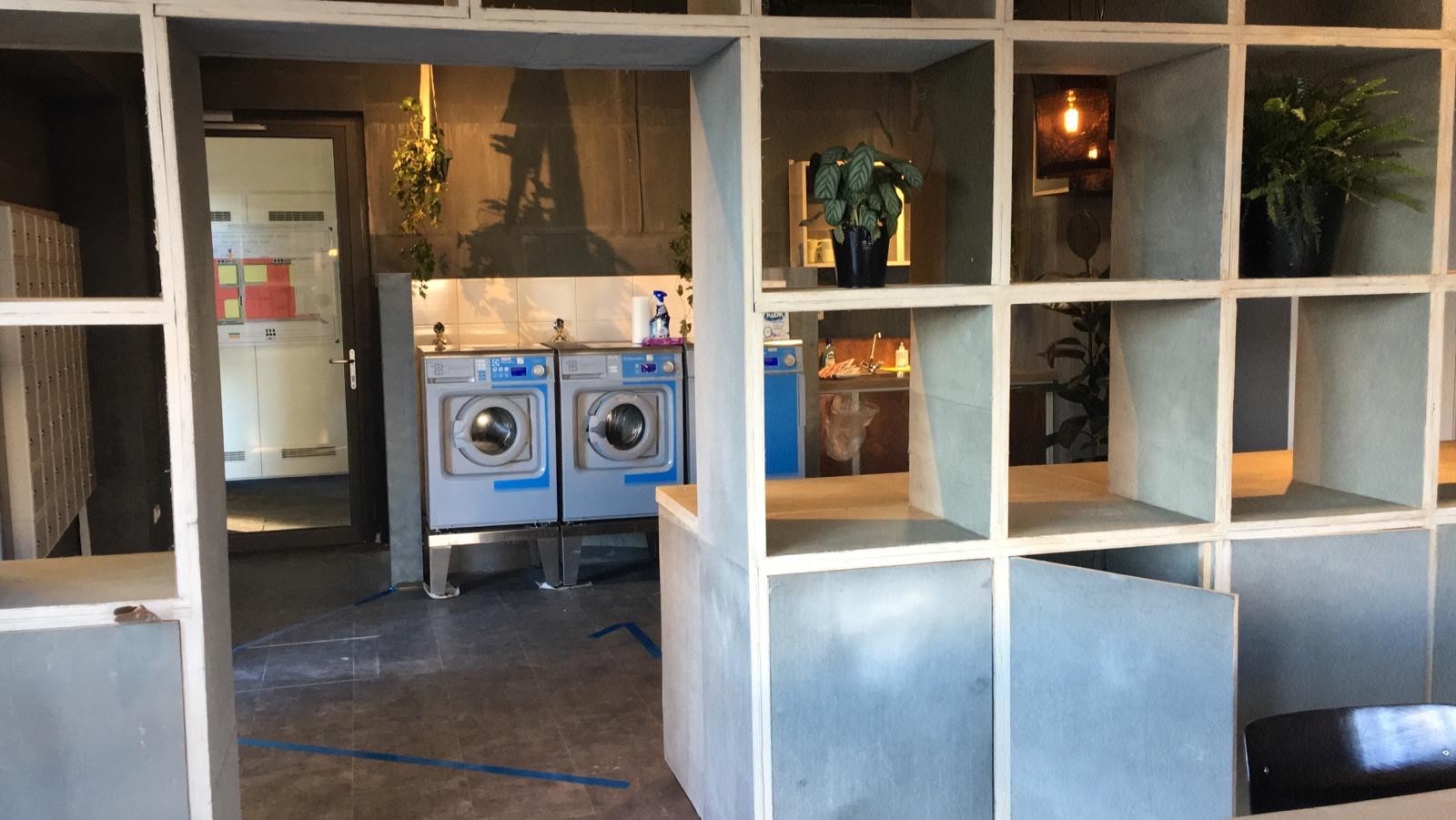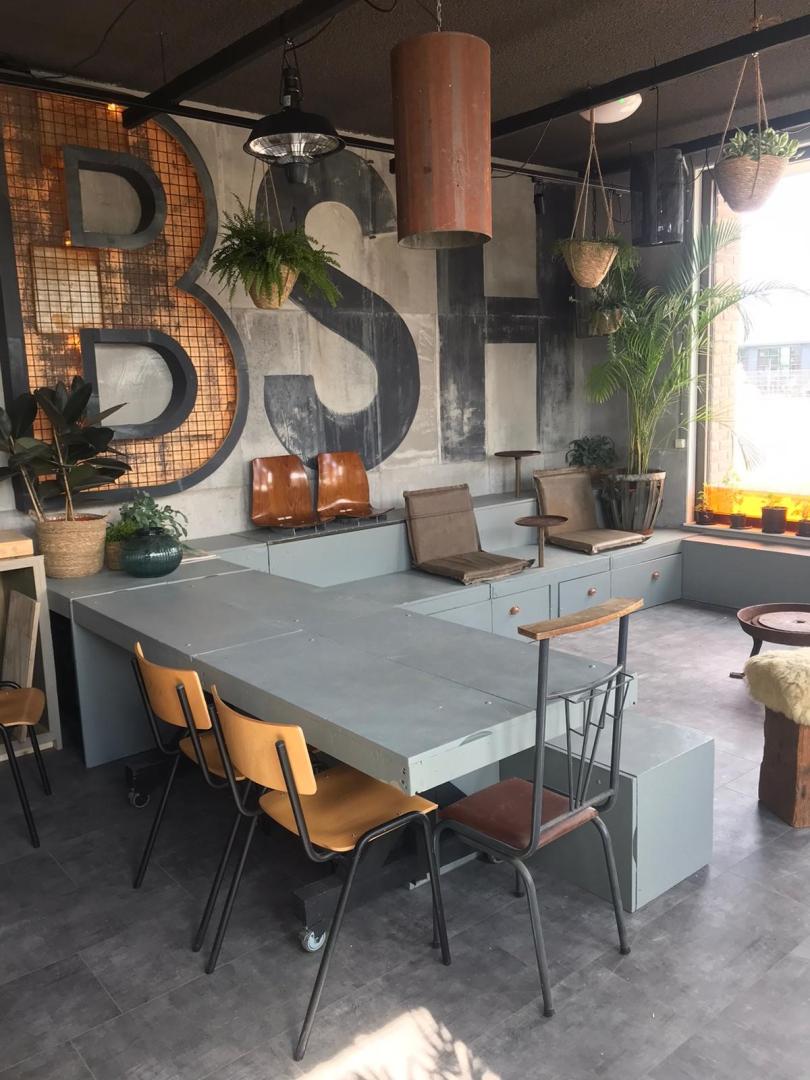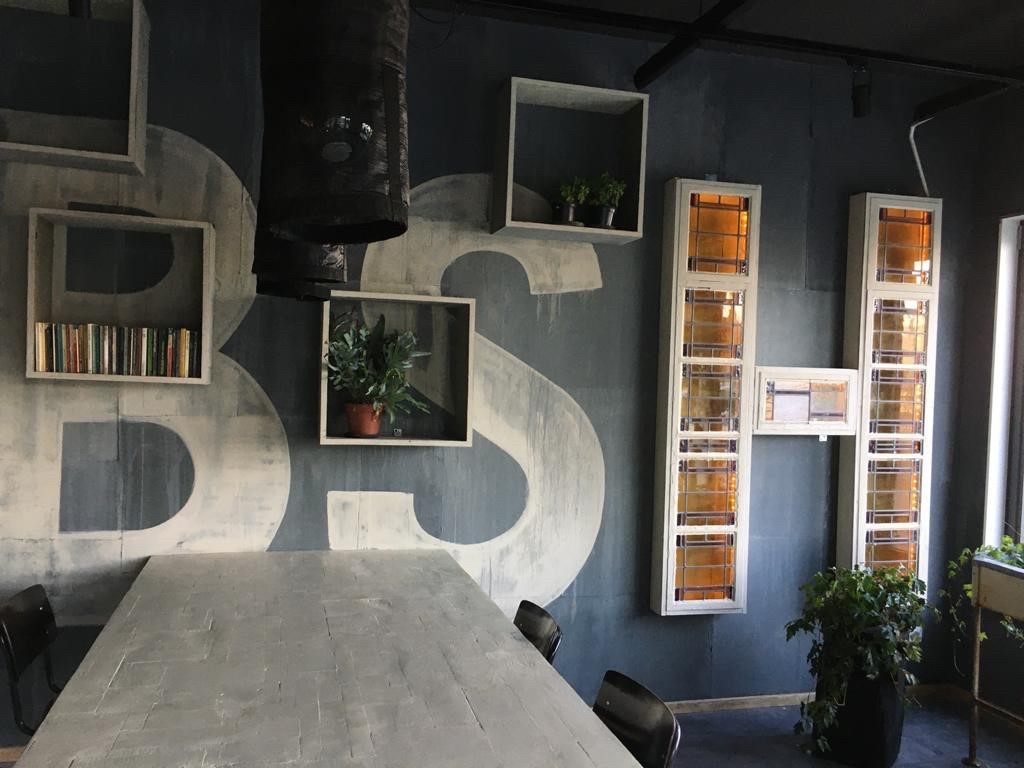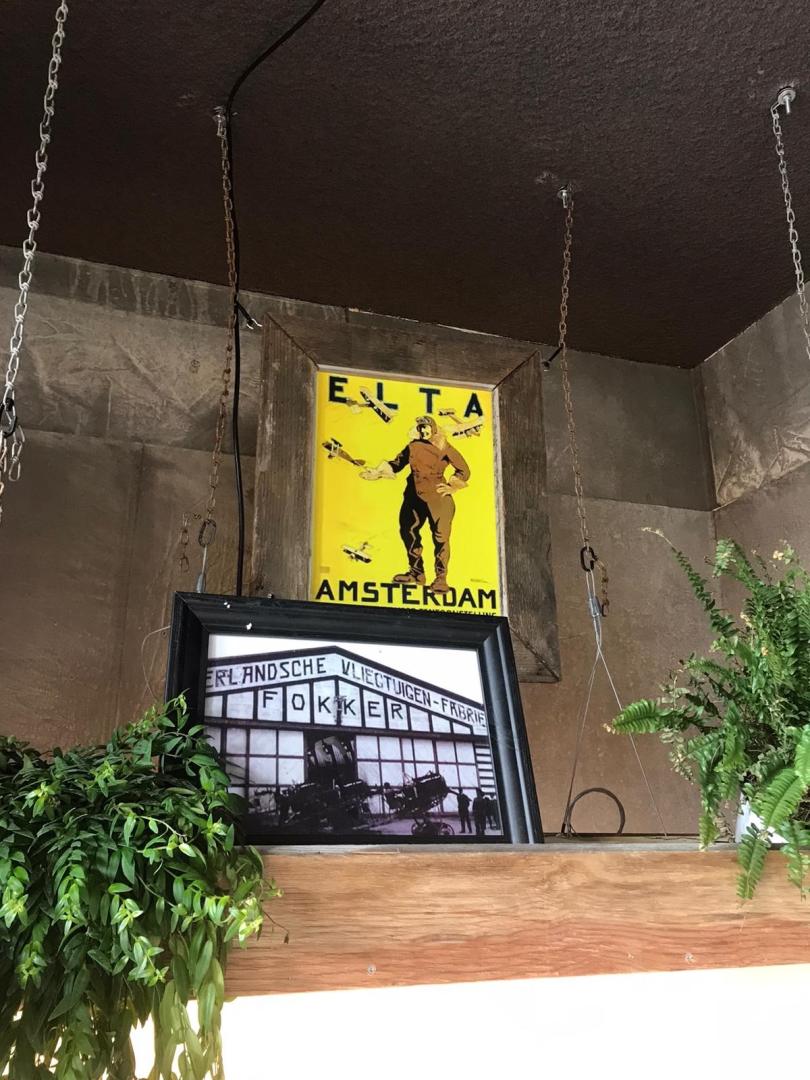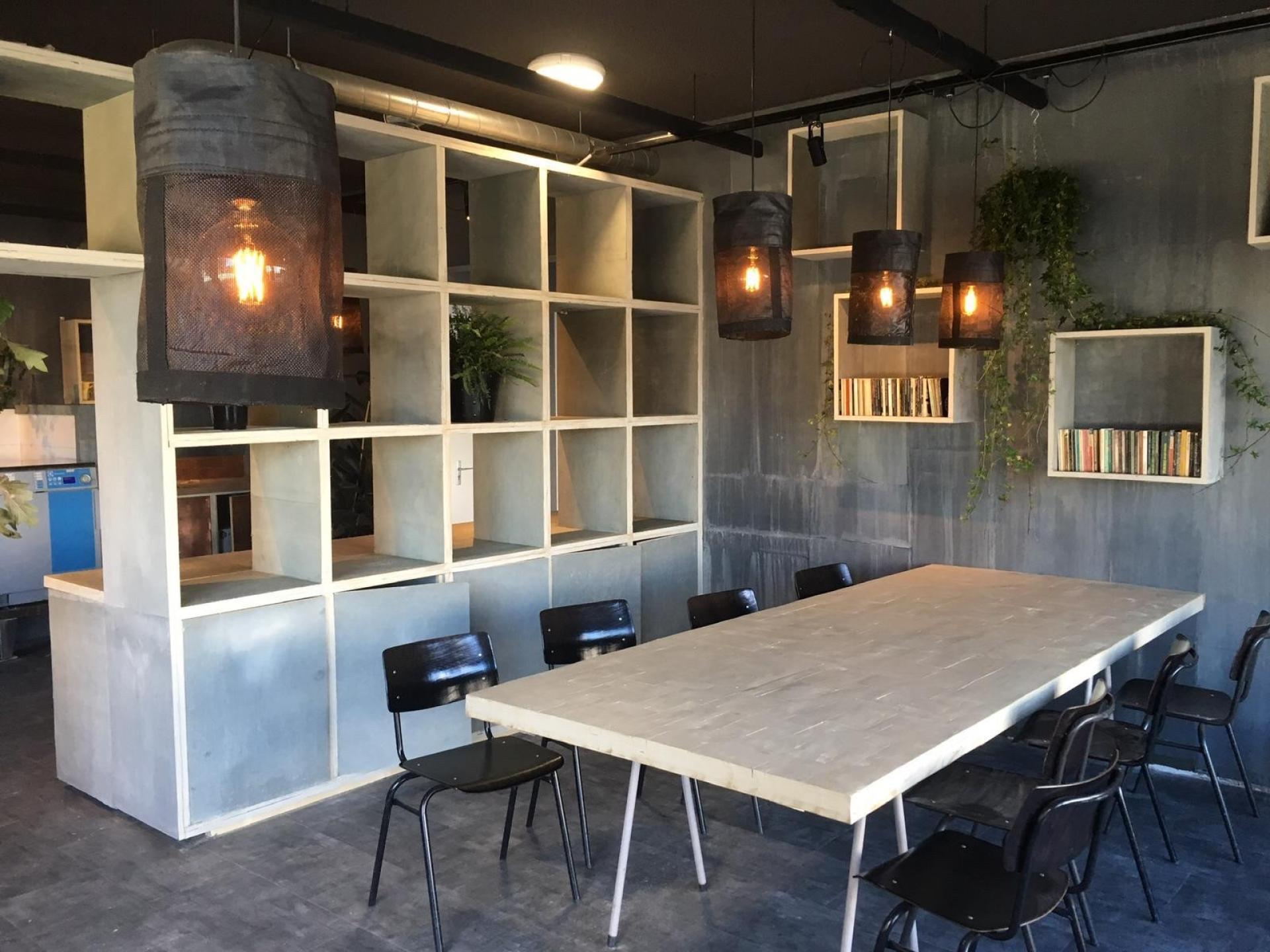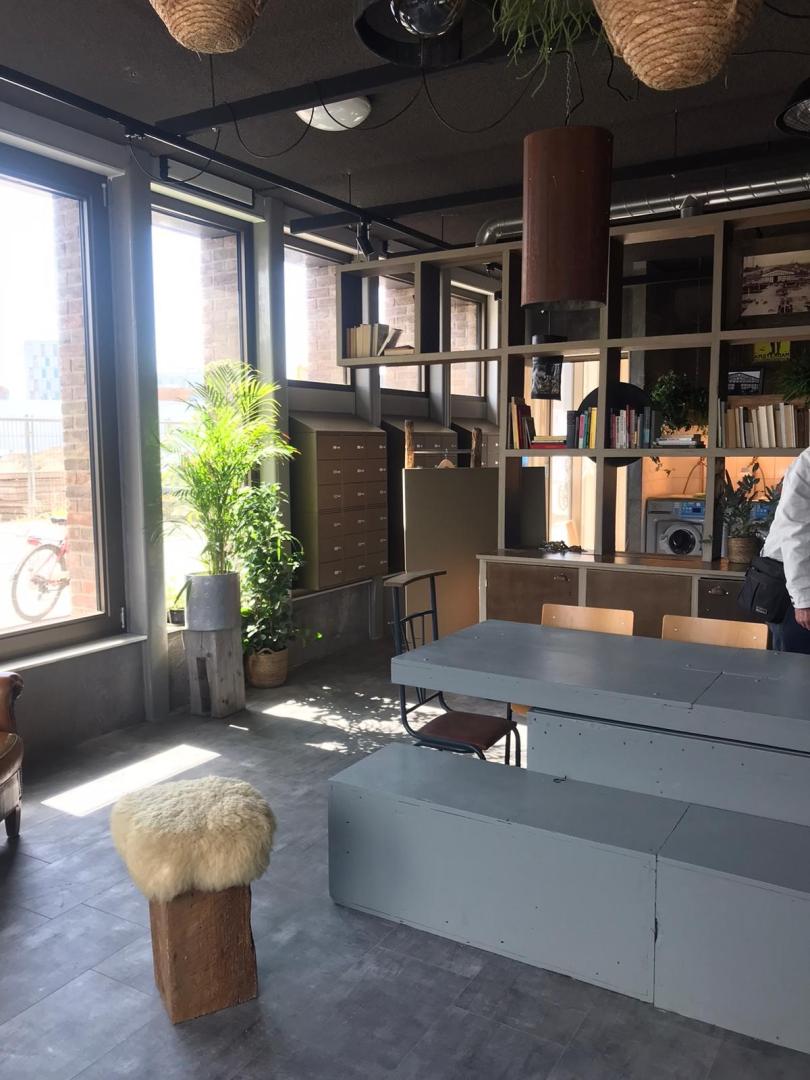Social (housing) circularity Amsterdam.
Basic information
Project Title
Full project title
Category
Project Description
Imagine social tenants with disabilities, stay in their neighbourhood to contribute to the sociale circulair elements in a neighbourhood, in stead of driving to the periferic suburbs to work?
3 buildings provides a space for laundry machine sharing, where activities are organized like washing and ironing, repair bicycles, meetings, etc. to make an inclusive city for all people living there.
At the same time every space is fully designed and built from waste. So: social en technical circular
Project Region
EU Programme or fund
Description of the project
Summary
It's all about the people! We also call it 'social architecture' of ' social circularity'! An approach and term wich don't really exists.
While working on circularity mainly involves technical solutions. But that's not the main challenge.
But if people don't use it properly, the circular goal is missed. We have found a solution to make it work in the community and inhabitants embrace this "social circularity" solution in what we call the laundry bar, bike repair and ' tabula rasa' where 138 tenants make there own agenda of activities.
We are a social housing organisation, building 3 small scale towers with wash an drying machines to share, because sharing is caring. And we run this project with Philadelpia, an organisation for people having slight disabillities but live on their own.
Key objectives for sustainability
Key objectives are both physical as social. The three Loundry spaces (sharing a wasching machine is better for the environment) are developed and designed out of waste. Everything is made out of waste, for example the walls are plastered with painted old army tents.
More important is the social programme for development fot Philadelphia's clients. Like repairing bikes of ironing laundry for tenants.
For our tenants it's a place to do you laundry and meet. We are of the view that this is an investment in the social maintenance of the building block. Because people met in a possitive way before, it's for example easier to adress a problem among each other (for example loud music). We see an increasing number of social problems, so this is an important investment in social maintenance and to control the situaition.
Key objectives for aesthetics and quality
The three laundry areas in the three social rental buildings, are designed by the designers of the musical 'soldaat van oranje'. On purpose we asked designers not involved in our sector. We were aiming 'no institutional look and feel'. The designers work wit waste only focussed on second life, and they look at visual qualities.
If a design is good, people show there respect in the implementation phase. So until now nothing is demolished of stolen. Because it looks desireable, tenants feel as it's their own. They feel very responsible to keep it clean and tidy.
Key objectives for inclusion
The nice thing is that the laundry bar is for all inhabitants of the neighbourhood. Home owners but also our social tenants. At the same time we have the usual tenants, and the disabled form Philadelphia. But there is nog distintion between them because everybody is the same, while doing the laundry. Different people visit the place, so they meet and get to know each other.
Even more important, if you visit the please, you should never think there is a social organisation behind it. It looks very 'normal' en no institution look and feel. this was a very important objective in therms of inclusion!
Results in relation to category
Our tenants are very proud and keep the rooms nice and tidy. Tenants are aware this is not standard.
Even tenants from surrounding commercial rental houses, are kind of jealous and say, it's even better than in our building, but we pay twice as more rent per month.
What we see, is a community. Everybody knows each other and the solve problems together, but the also take initiative by themselves. There is a good vibe.
Many housing institutions want to copy this idea of social circularity, because it's a challenge to keep control over het social rental units and mainly behaviour of tenants. They attrac problems. And mainly socially. There is only 1 answer: invest in the people, and stay close tot the situation, preventing polorisation in society.
How Citizens benefit
This is adressed in previous sections.
Innovative character
The most innovative is the connection between circular economy (bricks and stones : hardware) and 'the people' (software). In circular economy the talk about techniks and money and climate goals. But the most important is: do the clients embrace it?
Secondly, this is a very positive response to social problems in the maintenance phase of a building after erection. Because social problems increase in social rental stock in the Netherlands. Inclusive society is a growing challenge.
This is a corporation between two parties: Philadelphia and de Alliantie. By shifting and exchanging tasks en responsibilities we made this possible, from a financial point of view.
As adressed before, this is the inclusive city in reality. It's an anwer on polarasation in society among groups of people. To prevent that, first thing you do is get to know each other. That's what we do. Same as mixed schools. Or diversity in companies.
An artikel is written about this project: https://www.gebiedsontwikkeling.nu/artikelen/nieuwe-samenwerkingen-bouwen-aan-inclusieve-steden/

